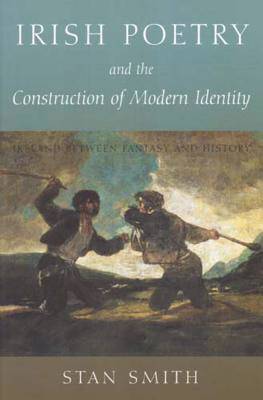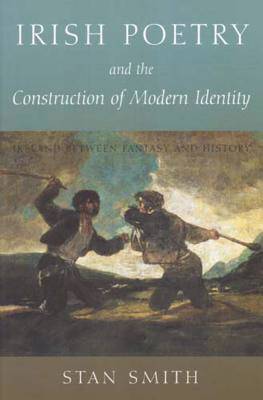
Bedankt voor het vertrouwen het afgelopen jaar! Om jou te bedanken bieden we GRATIS verzending (in België) aan op alles gedurende de hele maand januari.
- Afhalen na 1 uur in een winkel met voorraad
- In januari gratis thuislevering in België
- Ruim aanbod met 7 miljoen producten
Bedankt voor het vertrouwen het afgelopen jaar! Om jou te bedanken bieden we GRATIS verzending (in België) aan op alles gedurende de hele maand januari.
- Afhalen na 1 uur in een winkel met voorraad
- In januari gratis thuislevering in België
- Ruim aanbod met 7 miljoen producten
Zoeken
Irish Poetry and the Construction of Modern Identity
Ireland Between Fantasy and History
Stan Smith
Hardcover | Engels
€ 66,45
+ 132 punten
Uitvoering
Omschrijving
Among its various progenitors, literary Modernism can number two major Irish writers, James Joyce and W. B. Yeats, and a third, Samuel Beckett, who carried the 'revolution of the word' into a second generation. Yet Ireland as a nation came late to modernity. From the date of its symbolic inception as Europe's 'newest' state, retrospectively conferred on that foundational act of insurrection at Easter 1916, through the era of new nationalisms of the interwar and the parochialisms of the immediate post-War periods, Ireland turned its back not only on the challenge of modernisation but on the artistic, cultural and political transformations which accompanied it, compelling many of its finest writers to become actual or what Seamus Heaney has called 'inner Ã?Â?Ã?Â(c)migrÃ?Â?Ã?Â(c)s'. A second generation of Irish Modernists, Beckett, MacNeice, Devlin, Coffey, MacGreevy, Fallon, Clarke, sought ways out of the introverted, exclusivist and sectarian closure of 1930s Ireland, in part by a revolt against Yeats's nationalist rhetoric. Among other poets considered here, Montague, Heaney and Mahon, McGuckian, Muldoon and Carson have in various ways deconstructed not only the grand narratives of Irishness but the very language in which an Irish 'identity' has been rehearsed. In subverting and relativising these discourses, the postmodernist poetry of the last half-century has returned to some of the key issues raised but not resolved by the first generation of Irish Modernists, to imagine a new and contemporary Ireland, open to the cross-currents of a wider, European and international semiotics.
Specificaties
Betrokkenen
- Auteur(s):
- Uitgeverij:
Inhoud
- Aantal bladzijden:
- 238
- Taal:
- Engels
Eigenschappen
- Productcode (EAN):
- 9780716533290
- Verschijningsdatum:
- 1/04/2005
- Uitvoering:
- Hardcover
- Formaat:
- Genaaid
- Afmetingen:
- 165 mm x 248 mm
- Gewicht:
- 498 g

Alleen bij Standaard Boekhandel
+ 132 punten op je klantenkaart van Standaard Boekhandel
Beoordelingen
We publiceren alleen reviews die voldoen aan de voorwaarden voor reviews. Bekijk onze voorwaarden voor reviews.









